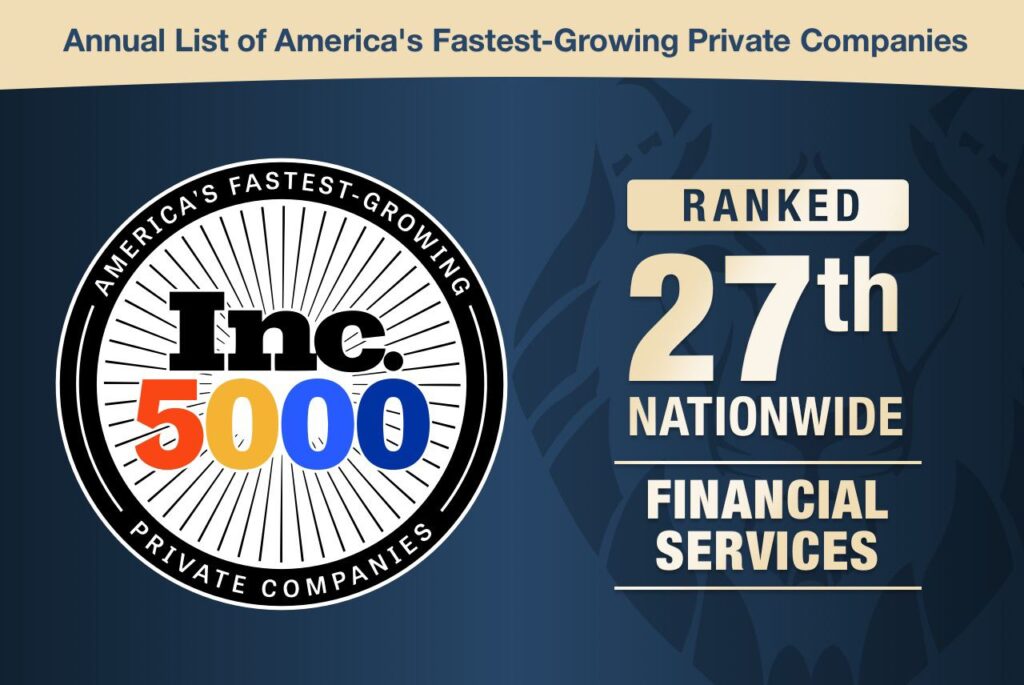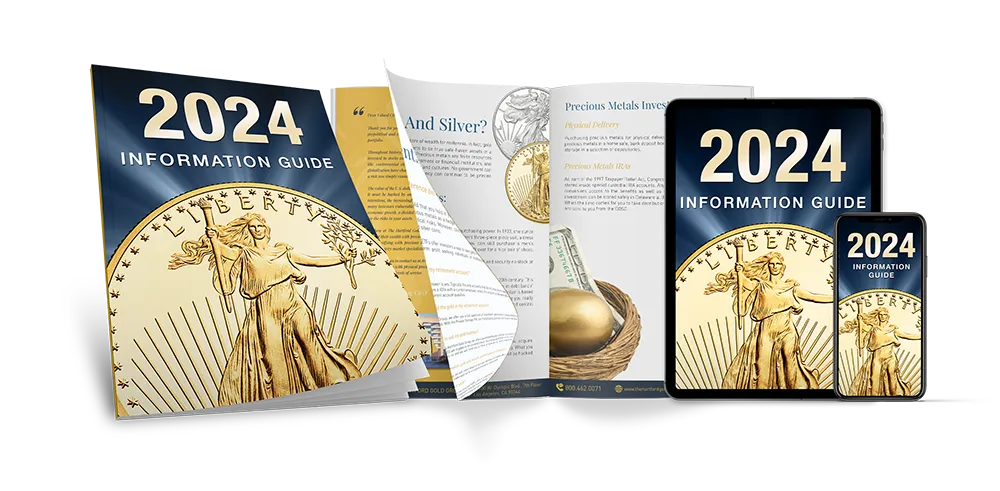The whispers of a looming recession continue to grow louder. At American Hartford Gold, we recognize this trend, and that’s why we advocate for the strategic use of physical gold to fortify financial portfolios against economic uncertainties. But what about other strategies? Is there anything else you can do to prepare for the tough times of a recession?
There are several advantageous strategies that you can start working toward right away. Join us as we share the top 9 ways to prepare for a recession.
What Is a Recession?
A recession is a significant downturn in the economy. It’s typically visible in real income, GDP, industrial production, wholesale retail sales, and employment.
The National Bureau of Economic Research (NBER) is the official arbiter of recessions in the U.S., and they define it as a significant decline in economic activity spread across the economy, lasting more than a few months.
Here’s what typically happens during a recession:
- Economic Downturn: There’s a noticeable slowdown in economic activities. This means a reduction in consumer spending and business investments.
- Increase in Unemployment Rate: Layoffs and job losses become more common as businesses try to cut costs, directly impacting Americans’ financial situation.
- Fluctuating Interest Rates: The Federal Reserve may adjust interest rates in an attempt to stimulate economic growth.
- Impact on Personal Finance: Individuals might see their credit scores affected, face higher credit card debt, and struggle with loan repayments. It becomes essential to manage monthly expenses and prioritize emergency savings.
- Decrease in Stock Market Values: The stock market often reacts negatively to a recession, affecting investments in mutual funds and other market-linked financial instruments.
- Changes in the Housing Market: Real estate can be impacted, with a potential decline in home values and a more challenging environment for lenders and borrowers.
Understanding what a recession entails helps in preparing for it. This includes building an emergency fund, paying down high-interest debt, and possibly considering a side hustle to supplement income.
How Can You Prepare for a Recession?
As economic activity fluctuates and economists debate the trajectory of economic growth, it’s crucial for Americans to take proactive steps to safeguard their financial situation. Here are some key strategies:
1. Establish an Emergency Fund
An emergency fund is a fundamental element of personal finance, serving as a safety net during financial uncertainties. Experts often recommend saving enough to cover several months’ worth of living expenses.
This fund is particularly important during times of economic downturn, where risks of job loss or unexpected expenses are heightened. Having this fund in place can provide financial stability and peace of mind.
To effectively grow your emergency fund, consider automating your savings. Having automatic transfers come out of your checking account and into your emergency fund helps you consistently save without having to think about it.
This method ensures that a portion of your income is directly funneled into your emergency savings, reducing the temptation to spend it. Additionally, periodically review your budget to find where you can cut expenses and redirect this extra money to your emergency fund.
The key is to build a financial buffer that provides support through unexpected challenges, keeping your long-term financial goals on track.
2. Reduce High-Interest Debt
High-interest debts, especially credit card debt, can significantly hinder your financial health, particularly in an economic downturn. The interest on these debts compounds quickly, making it harder to pay off the principal balance. To combat this, a proactive approach is necessary.
Start by first assessing all your debts and prioritize paying off those with the highest interest rates. This strategy, often called the avalanche method, can save you considerable interest payments over time.
Consider options like a home equity line of credit, which typically offers lower interest rates, to consolidate your debts. This can simplify your payments and reduce the amount you pay in interest.
Additionally, don’t hesitate to contact your lenders to negotiate better terms or explore hardship programs they may offer. Reducing high-interest debt improves your credit score and frees up funds that can be better used toward building your emergency savings or other essential financial goals.
3. Diversify Your Financial Portfolio
At American Hartford Gold, we believe in the power of a diversified financial portfolio, especially in times of economic uncertainty. One of the most effective ways to diversify your assets is through the inclusion of physical gold. Gold has a historical reputation for holding its value and providing stability during volatile economic periods.
Our Gold IRAs allow you to incorporate physical gold, such as bars and coins, into your retirement planning, offering a unique form of asset diversification. Physical gold maintains an intrinsic value, unlike paper assets which can be subject to market fluctuations and economic downturns.
Including gold in your portfolio is a step toward ensuring long-term financial security. As you navigate through various economic cycles, having gold as part of your portfolio can be a balancing factor, providing stability and confidence in your overall financial strategy.
4. Create Additional Income Streams
A single source of income may not be enough during economic hardships. The recent pandemic has shown us the unpredictability of job markets and the economy.
Therefore, it’s a good idea to consider establishing additional income streams. This could be in the form of a side hustle, freelance work, or even a small online business.
Not only does this help in managing monthly expenses and essential costs, but it also adds a layer of security to your financial situation. In the event of job loss or economic downturns, having an extra source of income can make a significant difference.
Platforms such as LinkedIn are fantastic for making connections and discovering new chances. Keep in mind that every bit of additional income plays a role in reaching your financial targets, whether that’s boosting your emergency fund, chipping away at debt, or considering investments in assets like gold.
5. Maintain a Strong Credit Score
The importance of a strong credit score can’t be denied, particularly during an economic downturn. This score is important for securing loans at favorable interest rates and maintaining good relationships with lenders.
Here are some tips to keep your credit score strong:
- Pay down credit card debt diligently, as high-interest debts can significantly affect your score.
- Ensure timely payments to avoid negatively impacting your credit history.
- Regularly review your credit report for inaccuracies and address them promptly.
- Be cautious with new credit applications, as they can temporarily lower your score.
By sticking to these habits, you’re taking care of a crucial part of your financial well-being. A solid credit score sets you up for a world of financial possibilities down the road.
6. Cut Non-Essential Expenses
Tightening the belt on non-essential expenses is a key strategy in weathering economic challenges. It’s about making smart choices to ensure your financial resources are focused on what’s truly important.
Here’s how you can start:
- Evaluate your monthly subscriptions and memberships, cutting out unnecessary ones.
- Limit discretionary spending in areas like dining out and entertainment.
- Negotiate for better rates on your regular bills where possible.
- Opt for more cost-effective alternatives in your daily purchases.
By implementing these changes, you free up funds for essential expenses and savings and cultivate a more mindful approach to spending.
7. Enhance Job Security
Enhancing job security in an economy marked by uncertainty is more essential than ever. During times of economic downturn, job loss can be a significant concern for many Americans. One effective way to bolster your job security is through continuous learning and skill enhancement.
Here are some strategies:
- Leverage Professional Networking Platforms: Platforms like LinkedIn are not just for job searching. They’re also invaluable for networking, staying updated on industry trends, and finding skill development opportunities.
- Pursue Certifications and Continuous Learning: Additional certifications or continued education can significantly enhance your job security in many industries. They demonstrate your commitment to your field and keep your skills up-to-date.
- Stay Informed about Your Industry: Keep an eye on your sector’s economic activity and trends. Understanding how your industry is affected by the broader economy can help you anticipate and prepare for changes.
By honing in on these aspects, you’re making yourself an indispensable part of the team, both now and in the future, no matter the economic climate.
8. Utilize High-Yield Savings Accounts
Another effective way to prepare for a recession is to maximize the growth of your emergency savings, with high-yield savings accounts being key. These accounts offer better interest rates compared to traditional savings accounts, making them an excellent choice for your emergency fund.
Here’s why:
- Higher Interest Rates: With these accounts, your savings grow faster, thanks to the higher interest rates. This means your emergency fund can increase without any additional effort on your part.
- Safety and Accessibility: High-yield savings accounts provide a safe place to keep your money, often insured by the Federal Reserve or other governmental bodies. Plus, they offer relatively easy access to your funds when needed.
- Encourages Saving: The prospect of higher returns can be a motivating factor to save more. This is particularly important in building up several months’ worth of expenses in your emergency fund.
Utilizing a high-yield savings account is smart in solidifying your financial foundation, especially in preparing for and navigating through an economic downturn.
9. Stay Informed on Economic Trends
Keeping yourself current on economic trends is critical to preparing for a recession. Staying clued in on economic shifts like GDP changes and unemployment rates is vital for getting the big picture of the economy.
It’s all about keeping tabs on updates from trusted sources like the NBER and tuning into the latest from the Federal Reserve. This insight helps you foresee any potential economic hiccups and tweak your financial strategies to stay on solid ground.
This knowledge is your guidepost for making smart calls on your emergency fund, deciding when to purchase stable assets like physical gold, and managing personal debts from credit cards to student loans.
The Power of Gold in a Recession-Proof Strategy
In times of economic uncertainty, like a recession, diversifying your financial portfolio becomes more important than ever. Physical gold, especially in the form of Gold IRAs, stands out as a smart consideration for recession preparation.
Unlike other assets that may be vulnerable to market downturns and economic instability, gold has historically maintained its value and, in many cases, even appreciated during such times.
American Hartford Gold plays a pivotal role in making this option accessible to individuals. We specialize in helping our clients incorporate physical gold into their retirement plans through Gold IRAs.
We provide the essential service of facilitating the acquisition of physical gold, ensuring a smooth and compliant process. By including gold in your retirement plan, you’re strategically positioning yourself for long-term financial stability.
Secure Your Future With Proactive Planning
Need the lowdown on adding physical gold to your retirement plans? American Hartford Gold invites you to explore the world of Gold IRAs as part of your recession-proof strategy.
Don’t wait for economic downturns to impact your financial well-being. After all, the smartest move in prepping for a recession is to get ahead of it, and by teaming up with American Hartford Gold, you’re making a savvy move toward protecting your financial legacy.
Let’s chat today and set you up for success — whether to prepare for a recession or a more stable future.
Sources:
About the NBER | National Bureau of Economic Research
What Is A Good Credit Score? | Equifax®
Best High-Yield Savings Accounts for December 2023 | Bankrate






